“This post contains affiliate links, and I will be compensated if you make a purchase after clicking on my links.”
More than 100,000 dogs and cats are accidentally poisoned in their own homes every single year. Many of the items, including food, medications, and household products that are perfectly safe for humans can cause severe reactions, irreparable damage, and even death in our furriest family members.
Because veterinarians continue to see the same household items poisoning pets year after year, it’s vital that dog owners be aware of the dangers lurking in their own cabinets and take steps to prevent a tragic event.
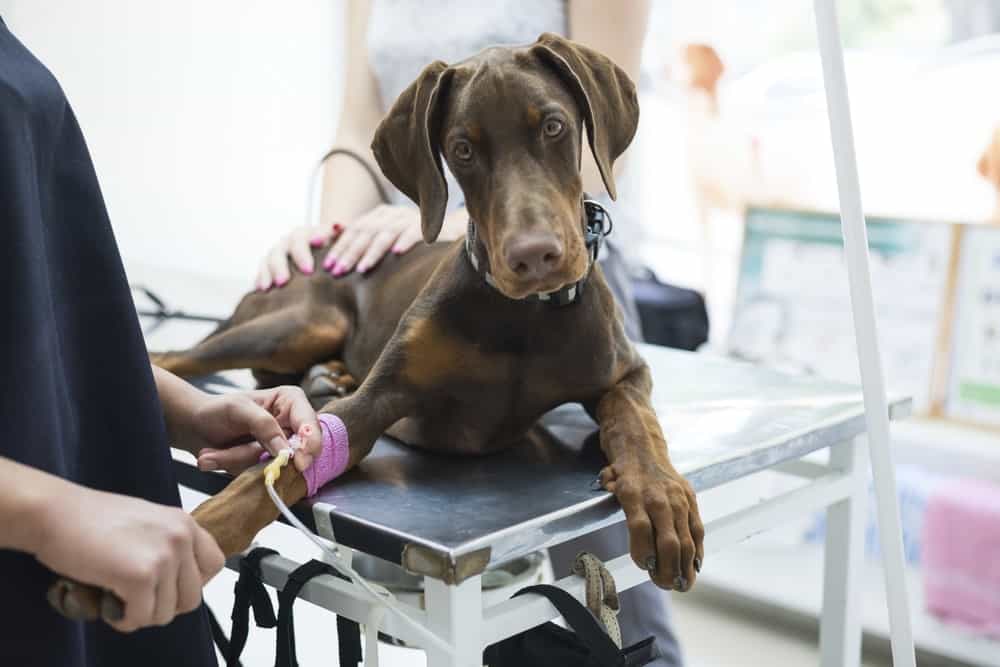
While there are dozens of common household items that pose a serious risk to pets, listed below are the ten most common causes of poisoning in dogs:
1. Human Prescription Medications:
Most pet parents are aware that medications prescribed to a human should never, ever, be given to a dog. However, accidental poisoning due to these dangerous drugs continues to be a main cause of canine poisoning year after year. The three most common human prescription medications responsible for illness and death in dogs include anti-inflammatory and pain medications, antidepressants, and blood pressure medication.
Dogs are extremely curious – sometimes to a fault. And, since they explore the world with their mouths, the things they find interesting very often end up being sniffed, licked, carried around, or chewed on. Pet parents should make a habit of always storing prescription medications well out of reach of curious canines, safely tucked into medicine cabinets or locked in a medicine safe. The moment you welcome a dog into your home, the days of leaving your pill bottles on the kitchen counter or nightstand, even for just a moment, are gone.
2. Insecticides (Including Flea & Tick Preventatives):
Another leading cause of poisoning in dogs involves the use, and overuse, of insecticides, including flea and tick preventatives created especially for pets.
Many household insecticides, like ant or spider killer, roach bait, and the like are effective at killing insects because of the poison they contain. This same poison makes them dangerous for use around pets. And, because many are designed to attract insects which then carry the poison back to their nests, they often contain ingredients that also attract curious pets with a sweet smell or taste. When shopping for insect killer or repellent, look for products that are labeled pet safe. Always place insect baits and traps well out of reach of your dog. And, when hiring a pest control service, be sure to inquire about the safety of their products for all pets in the home.
In addition to household insecticides, flea and tick medications created and used specifically for controlling fleas and ticks on pets are a leading cause of accidental poisoning. Before using any flea and tick prevention, including flea collars, spot-on treatments, sprays, powders, or shampoos, talk to your veterinarian about the proper type and dosage for your unique dog.
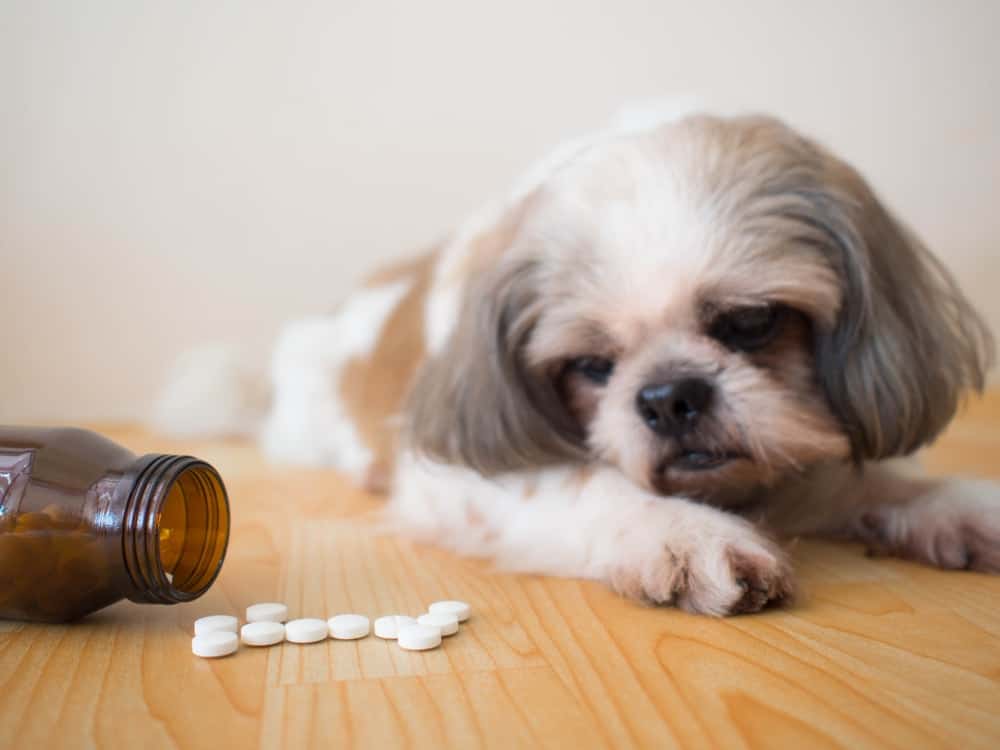
3. Over-the-Counter Human Medications/Supplements:
Like prescription medications, over-the-counter human medications and supplements are a leading cause of poisoning in dogs. The most common culprits are NSAIDS (non-steroidal anti-inflammatories) like Ibuprofen (Advil), acetaminophen (Tylenol), and naproxen (Aleve). While these poisonings are often accidental ingestion by a curious pup, other instances occur when a well-meaning pet parent gives their dog an OTC pain pill without realizing the lethal side effects.
Under absolutely no circumstances should a dog be given human over-the-counter medication unless specifically instructed by a veterinarian. To prevent accidental ingestion, these (and all human and pet medications and supplements) should be stored well out of reach of pets, put away in a medicine cabinet or pantry, or locked in a medicine safe.
4. Pet Medications (Prescribed and Over-the-Counter):
As you can see, medications in a variety of forms, prescribed or over-the-counter, created for humans or for pets, are all common sources of accidental poisoning in our four-legged family members. And, pet medications, despite being created especially for dogs, can pose serious health risks.
Poisoning by pet medications can occur when a pet parent gives their dog too much of a particular veterinary drug, most often a pain killer or de-wormer, or when a curious pet, often intrigued by medication that’s scented or flavored to make administering medication easier, gets hold of his medicine or supplement and helps himself to a dangerous snack.
As with human medications, pet medicines should be stored well out of reach of curious canines and pet parents should be diligent in following dosages exactly as prescribed by their veterinarian or on the label.
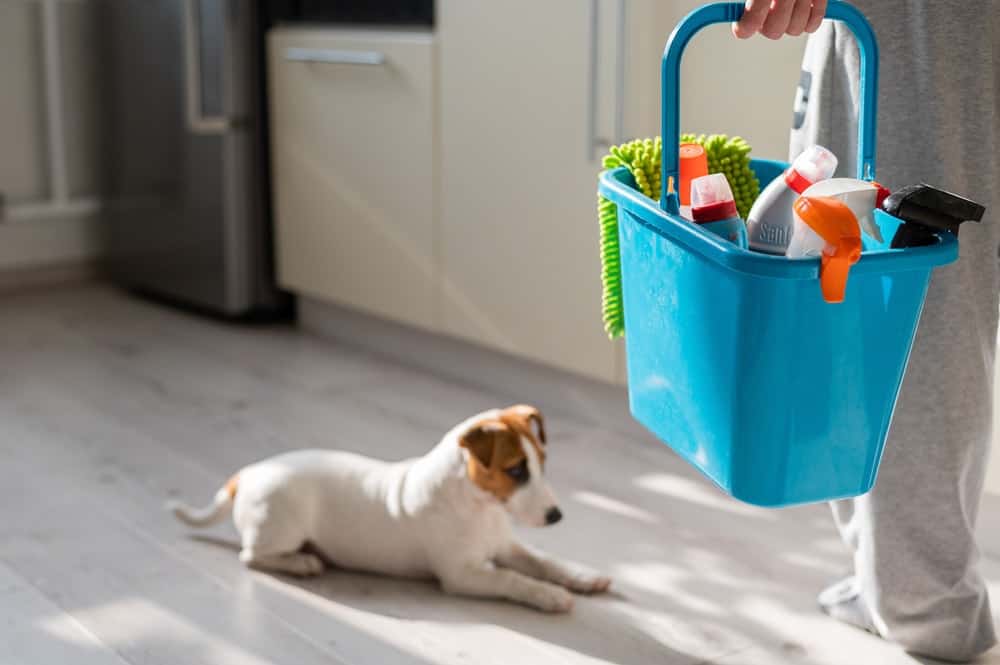
5. Household Products:
This category of products includes a broad range of causes of accidental poisoning, from cleaners and laundry detergents, to antifreeze, paint-thinners, toilet bowl cleaning tablets, and pool chemicals, the average home is well-stocked with dangerous, even deadly, household products. What’s more, many of these products don’t need to be ingested to be harmful. In some cases, skin contact or fumes from household products can cause adverse reactions in pets.
When using household products, always make sure the room is well-ventilated and keep pets in another area of the house while in use. Keep all such products well out of reach of pets and consider dog-proofing the home with cabinet and drawer locks to keep curious canines from gaining access. If you use a toilet bowl cleaning tablet, always make sure the seat is down and train dogs not to drink from the commode. Pet parents with pools should keep pets safely away from chlorine and other pool chemicals and limit access to the pool after a water treatment. And, antifreeze, in particular, should be kept far away from pets as many dogs find the sweet smell and taste irresistible. Remember, dogs are curious and often explore the world around them using their noses and mouths.
6. Human Food:
Another common source of poisoning in our furriest family members is through ingesting certain human foods that, while perfectly safe for us, can be harmful to dogs. Among the most common reports of pet poisoning due to human food are chocolate, macadamia nuts, grapes or raisins, onions, alcohol, and caffeine. In addition, some human foods that aren’t necessarily poisonous can lead to serious health complications when given in excess, like high-fat foods, dairy products, and heavily processed meals.
While it’s difficult to resist those begging puppy dog eyes peering up from below the dinner table, remember that while many fresh vegetables, fruits, and meats are excellent snacks for our four-legged friends, some can lead to a trip to the emergency veterinarian. If you’re unsure whether your own snack is safe, err on the side of caution and indulge your pal with a dog treat instead.

7. Chocolate:
Yes, chocolate is a part of the human food category above, but because such a huge number of cases of dogs being poisoned after ingesting chocolate occur each year, the sweet treat unfortunately earned its own spot in the top ten.
Chocolate contains a substance called theobromine that, in large amounts, can result in upset stomach, gastrointestinal distress, muscle tremors, seizures, an irregular heartbeat, internal bleeding, heart attack, or death. The severity of chocolate poisoning depends on the type of chocolate consumed and the size of the dog that eats it. Smaller dogs are much more susceptible to chocolate poisoning than their larger cousins. Darker chocolate and baker’s chocolate generally contain more theobromine than milk or white chocolates, but all types should be avoided.
8. Plants:
Many pet parents are unaware that the plants adorning their home and garden could be hiding a deadly secret. A surprising number of common household plants are toxic to our furriest family members. And, not all plants need to be eaten or ingested to cause serious health problems.
Among the most common toxic plants are the Sago palm, azaleas and rhododendrons, tulips and daffodils, oleanders, certain varieties of ivy, lilies, and hundreds more. In addition to the plants themselves, standing water and plant foods in planters and pots can pose a serious health risk if ingested. Before adding any plants to your home or garden, double check that they’re safe around your pets. And, make sure your dog doesn’t have access to standing water or plant food being used. Or, opt for realistic silk plants instead.
Don’t miss this guide to Common Toxic Plants for more information about the most common houseplants that are toxic to dogs.
9. Rodent Poisons:
Rodent poisons, or rodenticides, pose a double-risk to dogs, especially those who like to chase rodents including rats, mice, squirrels, gophers, chipmunks, etc. While some cases of accidental poisoning occur when a dog ingests or is exposed to the toxin itself, other cases involve a dog catching and eaten a poisoned rodent.
Instead of using rat poisons in and around the home, opt for pet-safe, poison-free traps or ultrasonic rodent repellers to keep rodents and rodent poison safely away from your dog. In addition, even if you don’t use rodent poisons in your own home, it’s still possible for a rodent that’s been poisoned by a neighbor to make its way into your yard. Always monitor your dogs while they’re outside, especially at night when rodents tend to be most active.
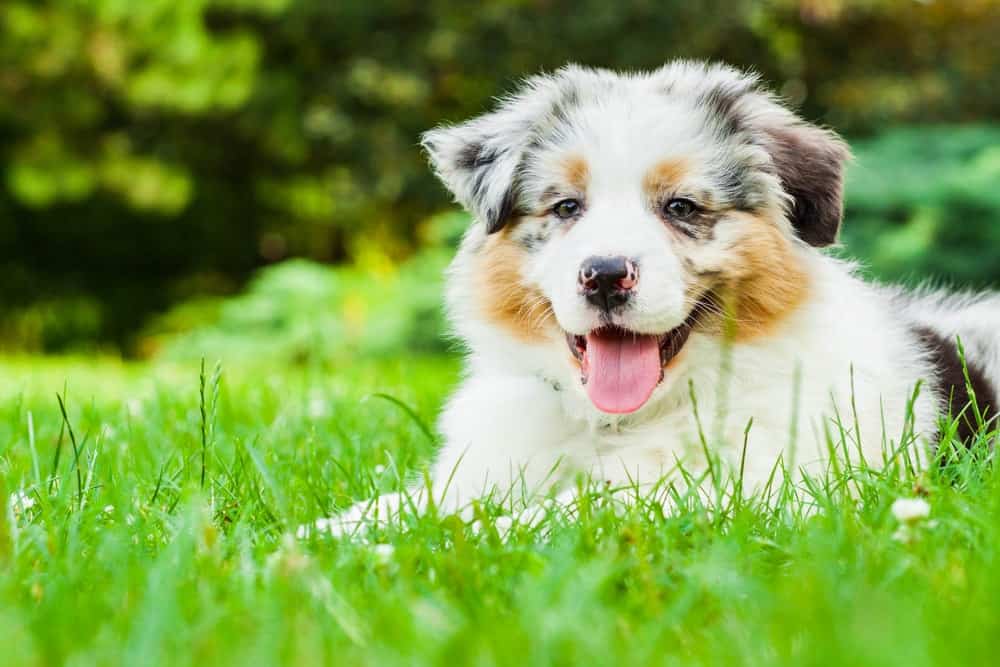
10. Lawn & Garden Products:
As pet parents, we want to create the perfect outdoor space for our dogs to enjoy. Unfortunately, many of the products used to beautify lawns and gardens are highly toxic to dogs, both in terms of short term, immediate poisoning, and in long-term health issues related to repeated exposure to chemicals and toxins. Common sources of poisoning by lawn and garden products include fertilizers, weed killers, insect sprays, and can even include certain mulches and plant foods.
When designing and maintaining your lawn and garden, look for products that are labeled safe for pets or limit your dog’s access to areas of the lawn that have been treated.
If you suspect your dog has been poisoned, remain calm, but act quickly. Identify and collect any remaining poison and talk to a veterinarian immediately. If your dog has vomited, try to collect a sample in the event in needs to be tested. After hours, don’t hesitate to visit an emergency vet for help. Do NOT induce vomiting without first consulting a veterinarian as some poisons can cause even more damage coming up.


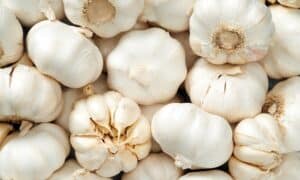












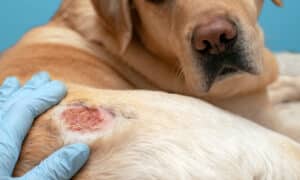





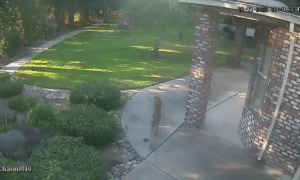


We have lost 2 dogs and 3 cats to poisoning. Whilst it was not possible to be certain of the type of poison, rodent poison is a common problem where we live. I’m sure people do not intend to harm our precious dogs and cats, but that doesn’t help. People need to think the situation through, before deploying these products.